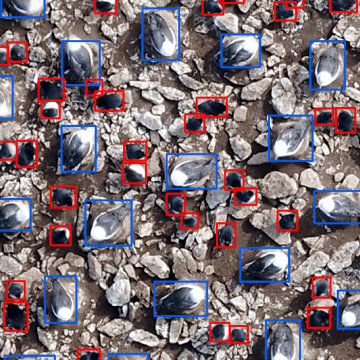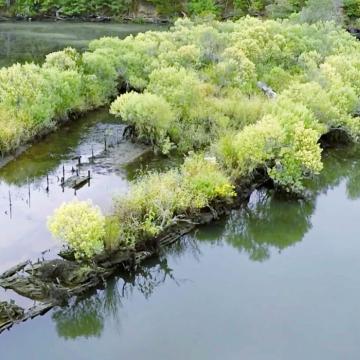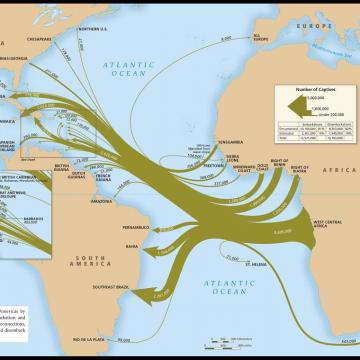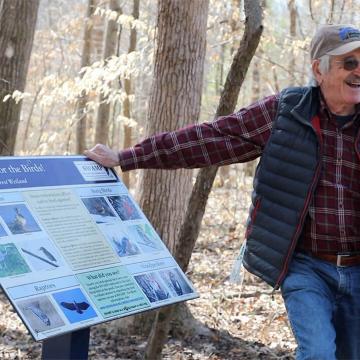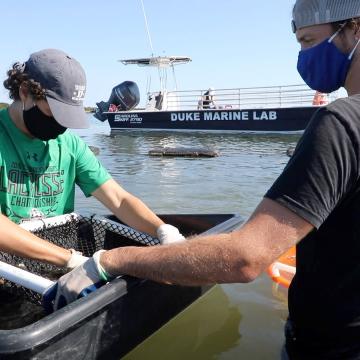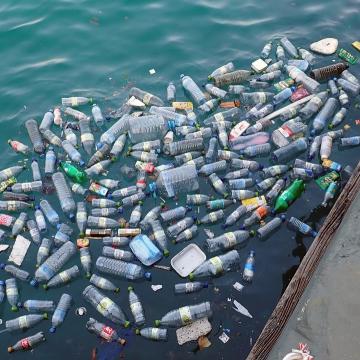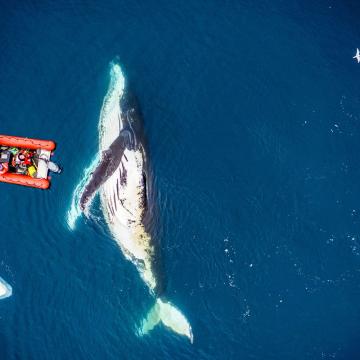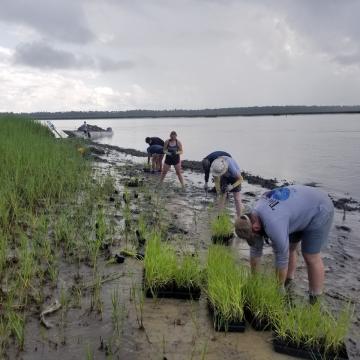-
NewsWarming waters along the Western Antarctic Peninsula have led to declines in the diversity and distribution of the region’s plankton population and its ability to absorb climate-warming carbon dioxide from the atmosphere.
-
NewsUsing drones and artificial intelligence to monitor large colonies of seabirds can be as effective as traditional on-the-ground methods while reducing costs, labor and the risk of human error, a new study finds.
-
NewsJoel Dunn (MEM’04) Helps Create America’s First National Marine Sanctuary in 20 Years
-
NewsShannon Switzer Swanson MEM'15 hosts the documentary, “The Last Drop.”
-
NewsBefore deep-sea mining begins on the seafloor in international waters of the Atlantic Basin, a group of scholars is advocating that a portion of the seabed there be recognized as a virtual memorial to victims of the slave trade.
-
NewsRecent Duke grad Alexandra DiGiacomo (BS ’20) is using drones to better understand how rising seas, warming waters and rapid development are killing protective saltmarshes at our coast, and what can be done to reverse the losses.
-
NewsSixteen years after the restoration of Upper Sandy Creek began, hundreds of species, some rare, now call the once-heavily eroded and degraded stream home, and nitrogen pollution flowing off Duke’s campus into downstream waters has been slashed by 75%.
-
NewsThe Duke Aquafarm is Duke’s other “campus farm,” where students grow oysters instead of produce and learn how the tasty bivalves could help take a bite out of coastal pollution.
-
NewsA new study shows that after listening to student presentations or watching student-produced videos about ocean plastics pollution and other garbage in North Carolina waters, local officials and voters reported feeling greater concern about the issue.
-
NewsWhen it comes to storing carbon during prolonged periods of drought and heat, wooded peatlands at low-latitudes have a three- to five-fold advantage over other peatlands. An ancient class of slow-growing fungi is the reason why.
-
NewsOcean mammals are at a crossroads, with some species at risk of extinction and others showing signs of recovery, a new study by an international team of researchers shows.
-
NewsA new $411,000 grant from the U.S. Department of Defense’s Strategic Environmental Research and Development Program (SERDP) is funding a four-year study by Duke University researchers to better understand the cumulative effects of human and natural stresses on critically endangered North Atlantic right whales.
-
NewsHarnessing the power of artificial intelligence, satellites and field observations, Duke researchers have produced new estimates of how much photosynthesis and primary production – key components in the global carbon cycle – are occurring in Earth’s oceans, and how these processes may be changing in response to a changing climate.
-
NewsPolicies that more strongly recognize the value of sustainable seafood as a source of nutrition, not just a source of livelihoods, could strengthen global food security and help take a big bite out of world hunger, a new analysis by an international team of experts shows.
-
NewsA new paper outlines some of the greatest coastal restoration successes in recent decades and identifies lessons we can learn from them to protect and restore similar environments worldwide.

